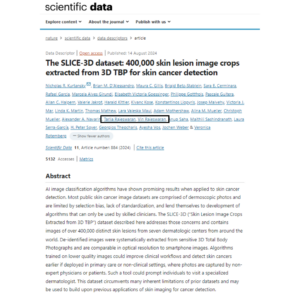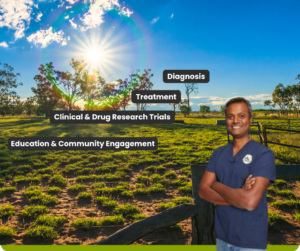
Direct Access to Pathologists – Because Every Minute Matters
Start Your Journey with FNQH Pathology Today
At FNQH Pathology, doctors can speak directly with the reporting pathologist, giving you faster answers and trusted second opinions when they matter most.
Partner with a lab that puts you and your patients first.


Start Your Journey with FNQH Pathology Today

Join FNQH Skin Cancer Clinic: Explore career opportunities with pathways to practice partnership, leadership roles, and a tropical sea change in Far North Queensland.

During the 2024 Australasian Melanoma Conference (AMC2024), I was privileged to present on “Integrating New Technologies for Melanoma Surveillance in Primary Care.” It was an engaging session where we explored best practices and future directions in primary care, leveraging innovative technologies for enhanced melanoma surveillance.

Our journey to expand and innovate at FNQH Skin Cancer Clinics and Pathology can be likened to the growth of a tree—rooted in care, nourished by innovation, and reaching towards new opportunities.

FNQH Skin Cancer Clinics and Pathology is committed to paving a different and innovative way forward like a landscape with multiple paths.

During the 2024 Australasian Melanoma Conference (AMC2024), I was privileged to present on “Integrating New Technologies for Melanoma Surveillance in Primary Care.” It was an engaging session where we explored best practices and future directions in primary care, leveraging innovative technologies for enhanced melanoma surveillance.